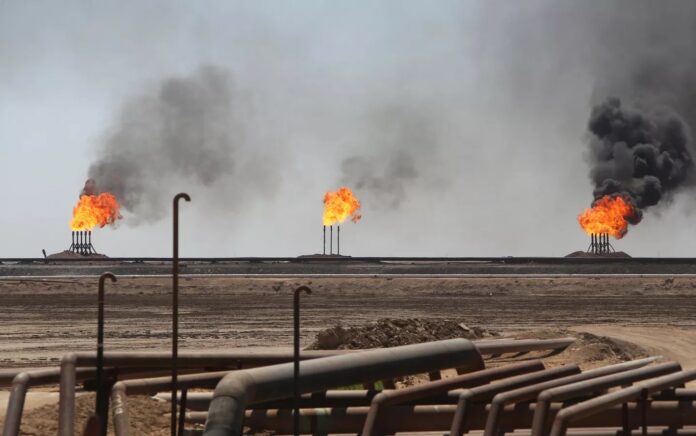Ali Abd al-Rahim al-Abudi – Al-Nahrain University / College of Political Science – Department of Economic Relations
Summary:
Although Iraq is considered a major source of crude energy, it imports oil derivatives from abroad with a financial value estimated at more than 7% of the total public government expenditures.
The amount of this percentage is more than $6 billion, and it can be settled in Iraq.
– The Iraqi Government needs to make a serious effort to halt the sabotage of local production lines supplying crude oil to national oil refineries, as well as to combat the corruption of non-integration of local oil production, which leads to a significant diversion of hard currency.
The waste of 47.5% of Iraq’s gas production is caused by oil production operations, with one-third of local gas needs being imported annually. These imports amount to $1.1 billion annually, representing a net loss of $6 billion in oil derivatives imported from abroad. Iraq has not benefited from the historic opportunity resulting from a 71% increase in world oil demand over the past 20 years. Iraq has not worked to achieve its plans to reach a daily production rate of 10 million barrels. The export rate continued at 3.8 million barrels per day, with the world moving towards reducing fossil fuel use and replacing it with clean energy by 2050, which would be a real crisis for the Iraqi economy.
The establishment of refineries, the development of existing refineries, and the establishment of petrochemical industries will increase the benefits of local oil production.
Although the licenses for service contracts have made many gains in the Iraqi economy and the oil industry, they have not achieved the expected ambitious results due to the institutional and security weakness of the energy sector in Iraq
– There is a need to reconsider the establishment and governance of the National Oil Company, to make it able to manage the current partnership with foreign companies and to qualify it to manage the operations of the petroleum and gas extractive industry in all its phases after reducing dependence on foreign companies. The experience of Saudi Aramco can be applied in this regard.
To maximize oil investment, Iraq needs to establish new refineries, and the concession method (BOT) can be utilized to do so. The idea of this method is to contract with a foreign or local company the construction, financing and operation of the management of the facility or project for a certain period, and after the expiration of the contract, the ownership of the facility or project is transferred to the State. If Iraq invests in the oil derivative industry, it will have to develop and establish transport and distribution networks, revive petrochemical industries (carpets, cosmetics, plastics, pharmaceuticals, fabrics, rubber, etc.), as well as enact the oil and gas law and resolve the contentious points of the extractive sector. The oil sector and its derivative industries in Iraq are in a critical stage.










